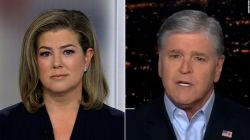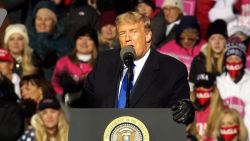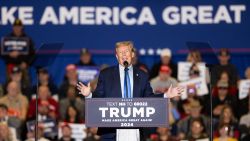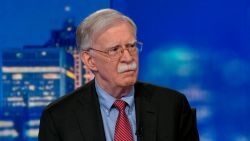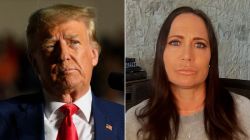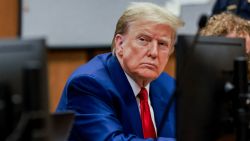Acting Attorney General Matt Whitaker will testify before the House Judiciary Committee Friday, Chairman Jerry Nadler said Thursday night, following a tumultuous couple of days where Whitaker threatened to not show up while Democrats prepared to subpoena his appearance.
The Justice Department confirmed Nadler’s Thursday evening statement that Whitaker will appear.
“The chairman has made the commitment that we requested, and agreed that, if Mr. Whitaker voluntarily appears at tomorrow’s hearing, the Committee will not issue a subpoena on or before February 8,” Justice Department spokesperson Kerri Kupec said in a statement. “In light of that commitment, Acting Attorney General Whitaker looks forward to voluntarily appearing at tomorrow’s hearing and discussing the great work of the Department of Justice.”
Earlier Thursday, the Justice Department said Whitaker would not appear at Friday’s closely-watched oversight hearing unless he receives a written assurance he won’t be served with a subpoena. The threat for Whitaker not to testify comes after the Judiciary Committee voted earlier Thursday to authorize a subpoena for Whitaker ahead of his Friday testimony — which Nadler said he would use only if Whitaker did not appear or would not answer the committee’s questions, including those about conversations with the White House involving special counsel Robert Mueller’s Russia probe.
Democrats on the committee approved giving Nadler the authority to subpoena Whitaker over the objection of Republicans earlier on Thursday, passing the resolution on a party-line vote, 23-13.
But what had appeared to be an escalating dispute between Nadler and the Justice Department raised questions about the likelihood of Whitaker appearing in what could be his only congressional testimony while leading the Justice Department, with William Barr on a path to be confirmed as the permanent attorney general by the Senate next week.
In the letter earlier Thursday, the Justice Department criticized Nadler for authorizing the subpoena “even though the Committee had not yet asked him a single question” and suggested Democrats were seeking to “transform the hearing into a public spectacle.”
“The committee evidently seeks to ask questions about confidential presidential communications that no attorney general could ever be expected to disclose under the circumstances,” Assistant Attorney General Stephen Boyd wrote in the letter, obtained by CNN.
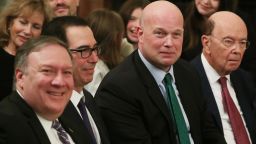
Nadler responded to the Justice Department letter by telling Whitaker that a subpoena would not be necessary if he answered lawmakers’ questions, and questions he would not be able to answer would be handled on a “case-by-case basis.”
“If you appear before the Committee tomorrow morning and if you are prepared to respond to questions from our members, then I assure you that there will be no need for the Committee to issue a subpoena on or before February 8,” Nadler wrote. “To the extent that you believe you are unable to fully respond to any specific question, we are prepared to handle your concerns on a case-by-case basis, both during and after tomorrow’s hearing.”
In the Justice Department letter to Nadler, the Justice Department did outline several questions that Whitaker is prepared to answer.
“The Acting Attorney General will testify that at no time did the White House ask for, or did the Acting Attorney General provide, any promises or commitments concerning the Special Counsel’s investigation,” Boyd wrote. “With respect to the Special Counsel investigation, the Department has complied with the Special Counsel regulations, and the Acting Attorney General will make clear that there has been no change in how the Department has worked with the Special Counsel’s office.”
In a statement, Whitaker said he would be willing to testify with the assurance that the committee wouldn’t issue a subpoena and would “engage in good faith negotiations before taking such a step down the road.”
A senior Justice Department official told CNN that the bottom line is that the Department is not aware of any precedent for the authorization of a subpoena before questioning.
“This is a breach of the agreement,” and a “striking departure from long-standing processes.”
Asked about Whitaker testifying before Congress, President Donald Trump called Whitaker an “outstanding person” and said he would do very well should he testify.
“I think he’s an outstanding person. I would say, if he did testify, he’d do very well. He’s an outstanding person, a very very fine man,” Trump said during a presidential memorandum signing in the Oval Office Thursday.
White House press secretary Sarah Sanders said in a statement that “the fact Chairman Nadler would try to force the public disclosure of private conversations that he knows are protected by law proves he only wants to play politics. The Chairman should focus on helping the American people, rather than wasting time playing pointless political games.”
Nadler said that authorizing a subpoena for Whitaker was necessary because Whitaker failed to tell the committee whether the Trump administration would invoke privilege with respect to a series of questions they intend to ask about Whitaker’s conversations with the White House about Mueller’s probe and his decision not to recuse himself from the matter.
Nadler argued in a letter sent to Whitaker last month that he could not claim the White House reserved the right to claim executive privilege to avoid answering those questions. He asked Whitaker to consult with the White House ahead of the hearing and tell the committee whether he would invoke privilege.
“The subpoena will only be issued if he refuses to answer questions on a speculative basis of privilege,” Nadler said. “If he does not show up — though I do expect he will — but if he refuses to answer questions he ought to answer, then we will have the tools we need to ensure that we may adequately meet our own responsibilities.”
Republicans slammed Nadler for pre-emptively planning a subpoena for a witness who had voluntarily agreed to testify, saying it was setting a troubling precedent.
“A subpoena should only follow a breakdown of the accommodation process and as a last resort against persons seeking to frustrate legitimate oversight on this committee,” said Rep. Doug Collins of Georgia, the committee’s top Republican. “There has been no breakdown here.”
Collins said that the Justice Department’s response to the subpoena vote showed that Democrats “overplayed their hand.”
“In a quest to score political points against the President, they authorized a preemptive subpoena, treating a voluntary witness as hostile,” Collins said.
Republicans proposed an amendment, offered by Rep. Andy Biggs of Arizona, to add Deputy Attorney General Rod Rosenstein – a familiar target of the GOP given his past oversight of the Mueller probe – to Nadler’s subpoena, which was rejected by Democrats.
Several Republicans on the committee pushed for former Judiciary Chairman Bob Goodlatte, a Virginia Republican, to subpoena Rosenstein in the last Congress, though he ultimately did not appear.
Whitaker has been undertaking significant preparations ahead of the hearing, including conducting briefings with every the Justice Department component and participating in several mock hearings, according to the officials.
This story has been updated with additional developments Thursday.
CNN’s Liz Stark, Manu Raju and Pam Brown contributed to this report.













